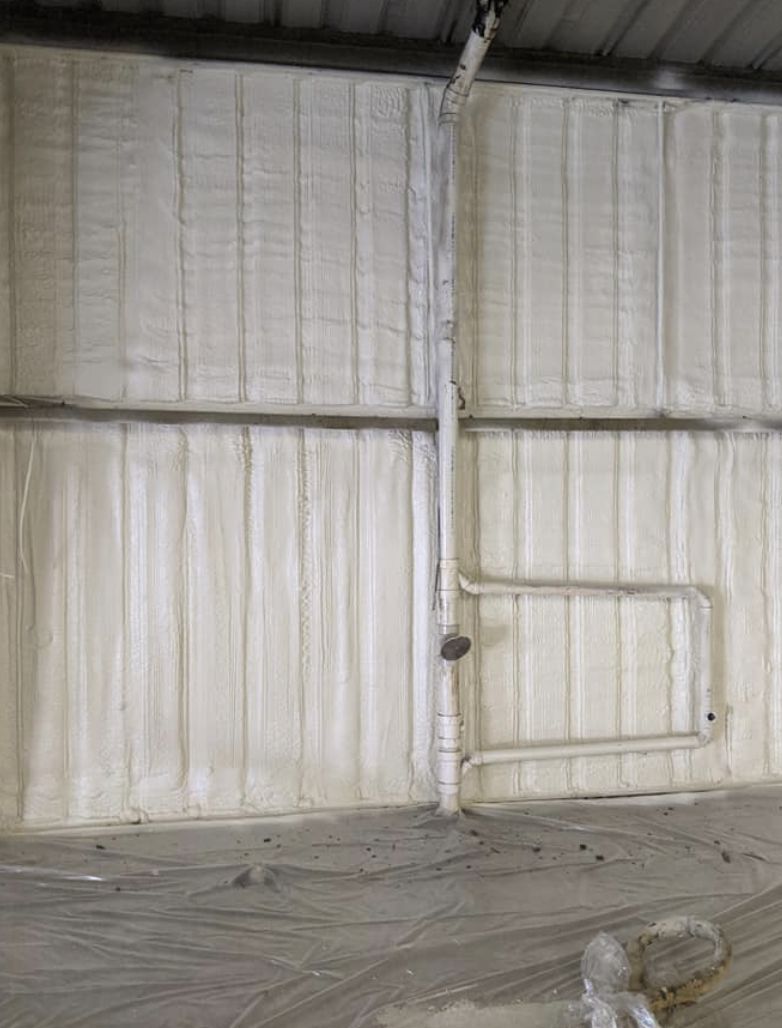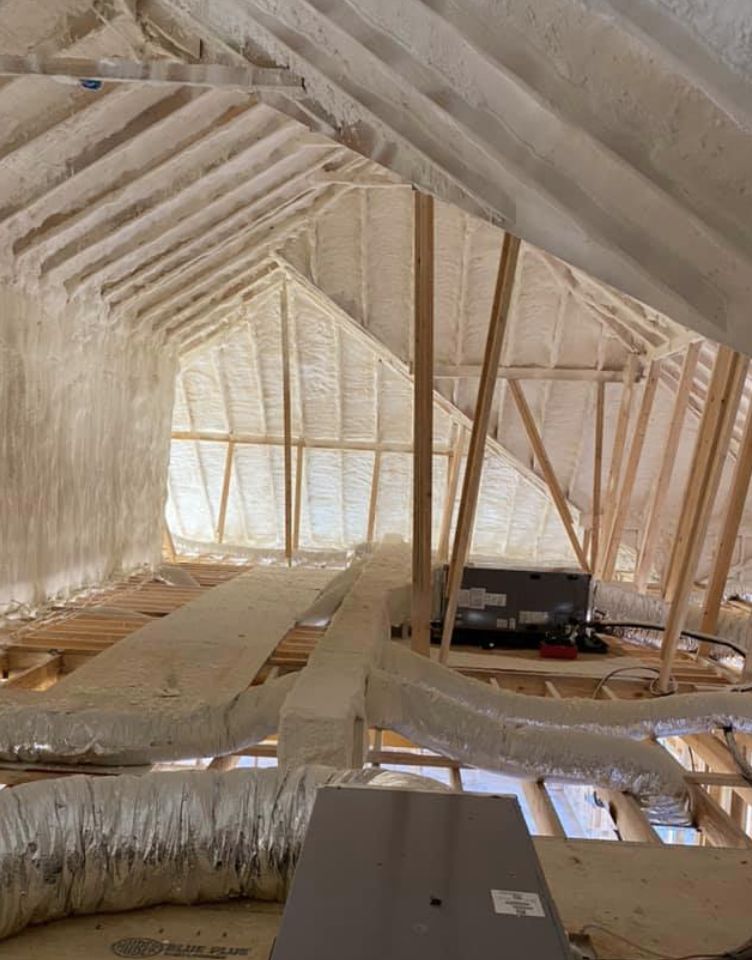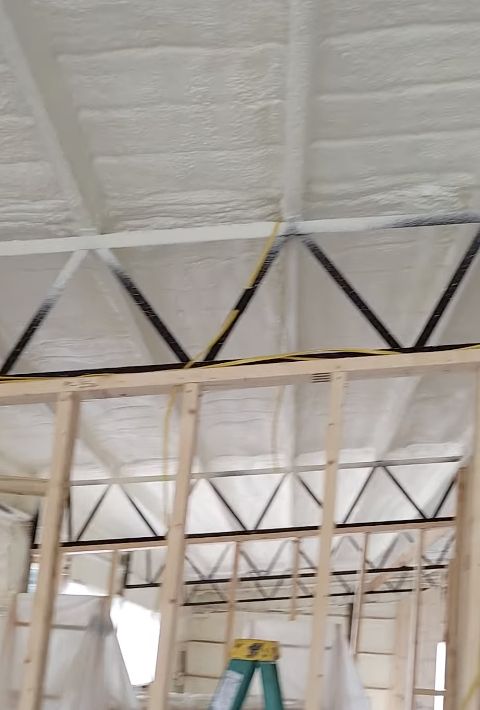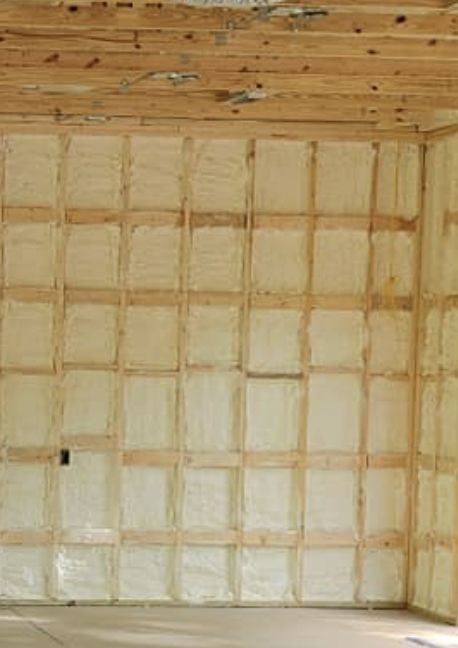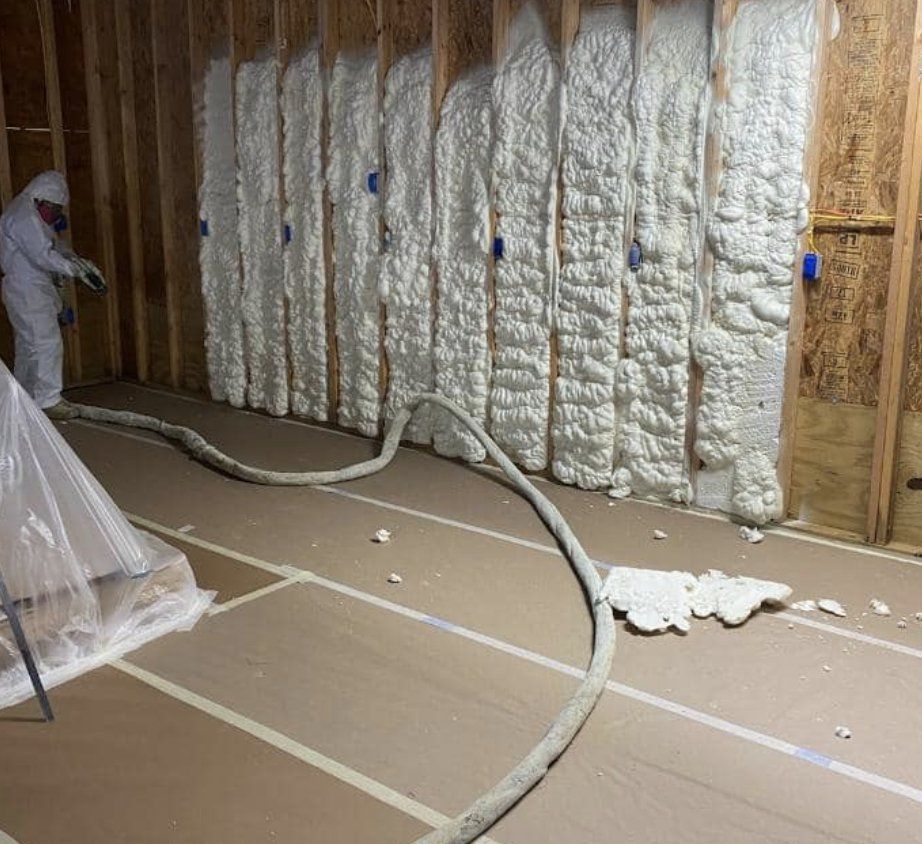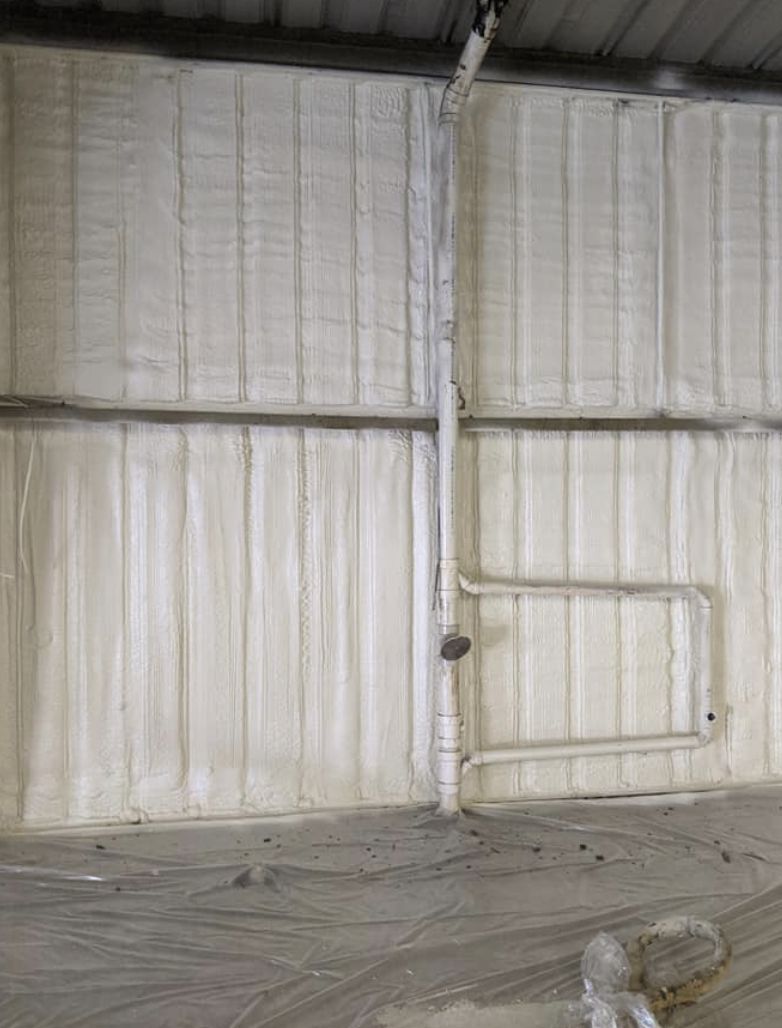Attic Insulation Services in Denver, CO: Enhancing Your Home's Efficiency
Increasing Your Home Efficiency through Attic Insulation
Are soaring energy bills in Denver giving you chills every month? Attic insulation might be the solution you've overlooked. This article delves into the critical role attic insulation plays in cutting energy costs, explores various insulation types ideal for Denver's climate, and outlines the installation process. You’ll discover how initial costs can lead to long-term savings and even rebates. If you're wrestling with decisions about duct insulation or fretting over plumbing vulnerabilities in your attic, keep reading. We’ll guide you through selecting the best service provider for insulation installation to enhance your home's efficiency and comfort.
FAQs About Attic Insulation Services in Denver, CO
Attic insulation is a key player in the energy efficiency and comfort of Denver homes. Homeowners often ponder the longevity of their insulation, its influence on property value, the risks of excessive material, and the overall contribution to energy savings. Signs pointing to the need for new insulation also draw attention from conscientious residents. These crucial considerations are dissected to provide clear, actionable insights, ensuring your attic serves as an asset in energy management and home performance.
Types of Attic Insulation Suitable for Denver Homes
Denver's unique climate necessitates choosing the right type of attic insulation to maintain home energy efficiency. 'Fiberglass Insulation: Pros and Cons' offers a balanced view on this popular material, evaluating its suitability against 'Building Code' compliance and Xcel Energy recommendations. 'Cellulose Insulation: An Eco-Friendly Choice' considers a greener approach, aligning with Energy Star standards. 'Spray Foam Insulation: The Comprehensive Solution' delves into its all-encompassing benefits, including exceptional heat retention. Lastly, 'Factors to Consider When Choosing Insulation Material' guides homeowners on what to consider, whether it's the thermal properties of wool or other concerns pertinent to Denver homes.
Fiberglass Insulation: Pros and Cons
Fiberglass insulation, often chosen for its cost-effectiveness and reliability, is widely used in Denver homes for both its thermal and soundproofing qualities. However, while it may be efficient in insulating wood-framed attics, homeowners need to be mindful of its installation nuances, ensuring a vapor barrier is integrated to prevent moisture accumulation. Fiberglass is lightweight, which makes it less burdensome for attic structures, but it requires careful handling to avoid irritation during installation.
One drawback to consider when using fiberglass in attics is its lower efficacy as a sound barrier compared to denser materials. Although it does provide a degree of soundproofing, homeowners seeking peace and quiet may opt for additional sound-damping layers or an alternative insulation solution. Moreover, when incorporating any insulation, it's crucial to use a paint or sealant compatible with the respective material, maintaining the attic's integrity and enhancing overall home efficiency.
Cellulose Insulation: An Eco-Friendly Choice
Cellulose insulation stands out as a judicious investment for Denver homeowners seeking both thermal efficiency and environmental responsibility. Unlike traditional fiberglass or polystyrene-based options, cellulose is fabricated predominantly from recycled paper, reducing reliance on plastic. A known eco-friendly choice, it offers comparable insulative performance, hindering heat transfer and contributing to energy savings. Homeowners curious about upgrading can consult specialized FAQs for further insights into cellulose's positive environmental impact and energy-saving potential.
The installation of cellulose insulation embodies a practical solution for Denver's diverse climate, with the added benefit of supporting sustainable living. Its dense makeup allows it to fill in gaps and crevices more effectively than fiberglass, creating a robust barrier against the city's temperature extremes. Those looking to elevate their home's green credentials will appreciate cellulose's low embodied energy, as well as its ability to lower utility bills, reflecting its dual prowess in protecting both the planet and personal finances.
Spray Foam Insulation: The Comprehensive Solution
For Denver homeowners delving into home improvement, spray foam insulation emerges as a comprehensive solution in the array of attic insulation options. Its expansive nature seals nooks and crannies with precision, thwarting moisture invasion that can degrade rain gutter systems and interior spaces. In Colorado's fluctuating weather, this insulation method is stellar in maintaining a secure and energy-efficient home year-round.
Applying spray foam insulation along ceilings and in attic spaces encapsulates the area, creating a formidable barrier against external temperature swings. This home improvement step not only optimizes indoor climate control but also contributes to the integrity of the home by diminishing the likelihood of moisture-related complications that can compromise structural components. Residents who choose this solution find that their homes stand resolute against Colorado's diverse climate, assuring comfort and efficiency.
Give us a call today at 303-529-4249
The Process of Installing Attic Insulation in Denver, CO
Initial Inspection and Assessment
Before any insulation work begins, an initial inspection and assessment by a qualified handyman are essential to determine the specific needs of a Denver home. This phase involves evaluating the current state of attic insulation and identifying any factors that could impact energy conservation, such as gaps around the furnace flue or inadequacies in the present Owens Corning insulation system. This thorough examination ensures that upcoming insulation improvements will be comprehensive and tailored to enhance the home's overall energy efficiency.
The assessment intricately examines how various factors like solar power utilization can influence the choice of insulation materials and strategies. It's more than just checking for drafts; it’s about understanding how the attic space interacts with elements such as the home's furnace or potential solar heating to optimize the insulation for maximum energy conservation. A detailed inspection lays the groundwork for a home's efficient climate control, paving the way to lower energy costs and a comfortable living environment year-round.
Preparing Your Attic for Insulation
Before retrofitting your attic with new insulation, it's crucial to get the space ready for what's to come. A trusted general contractor will clear out old materials, ensuring nothing obstructs the installation of fresh, fireproofing insulation. Crucially, this preparation step often includes putting in place aluminium foil barriers where needed to maximize energy efficiency and safety.
The preparation phase also involves a meticulous inspection of the attic to identify any areas needing repair before adding new insulation. Addressing cracks or openings beforehand helps maintain the integrity of the insulation's thermal barrier. This proactive approach, taken by seasoned contractors, lays a strong foundation for optimal performance of the newly installed attic insulation.
The Installation Process: What to Expect
During the attic insulation process, Denver homeowners can expect skilled technicians to meticulously address each space between the joists. Special attention is paid to preventing heat transfer by applying mineral wool or other insulating materials in an even, uninterrupted layer, ensuring no leaks rob the home of its energy efficiency. This methodical application safeguards against costly energy losses and sets the stage for stable, reduced heating and cooling bills.
As the insulation process unfolds, professionals take great care not just to insulate, but to fortify your home's energy barrier, particularly around vulnerable areas like lawn-facing eaves or vent exits. Proper installation technique involves sealing these potential leak points to combat the brisk Denver climate, thereby enhancing the overall effectiveness of the attic insulation and making certain that the warmth generated by your furnace stays right where you need it most.
Post-Installation Review and Efficiency Check
Once the installation of attic insulation is complete, it's crucial for homeowners in Denver, CO, to have a post-installation review and efficiency audit conducted. This review is designed to ensure materials such as cellulose or glass wool have been installed correctly and are providing the intended level of energy conservation. Proper attention to sealing and insulating the roof and attic area can result in significant long-term savings on energy bills.
An efficiency check often involves a thorough examination of the insulation's impact on the home's overall thermal performance. Specialists may use thermal imaging to detect any areas where heat might be escaping, guaranteeing that the newly installed cellulose or glass wool is performing optimally. With this data, homeowners can feel confident that their investment in attic insulation services has solidified their residence against Denver's climatic challenges and optimized their home for top-tier energy efficiency.
Understanding the Importance of Attic Insulation in Denver, CO
The role of attic insulation in affecting home efficiency is paramount, notably in Denver, CO, where seasonal snow and temperature shifts demand robust home energy management. Insulation companies highlight the need for superior insulation standards crafted for Denver homes. Adequate attic insulation services can impact energy expenditures significantly, ensuring residents don't overpay on their heating bills. For homeowners looking up their Denver zip code, it's vital to consider both attic and crawl space insulation as key factors in preserving a comfortable indoor environment, regardless of the weather outside.
The Role of Attic Insulation in Home Efficiency
Attic insulation plays a pivotal role in maintaining a home's energy efficiency, especially in Denver, CO, where temperature fluctuations are common. Properly installed insulation, such as light-reflective spray foam, can prevent the loss of warm air during the winter and keep interior spaces cool in the summer, reducing the dependency on air conditioning systems. By ensuring that a home's attic is well-insulated, homeowners are taking a significant step towards minimizing energy consumption and achieving a balance between comfort and cost savings.
Furthermore, professional attic insulation services in Denver often utilize a blower door test to identify air leakages that can undermine insulation effectiveness. Sealing off these leaks, particularly in spaces adjacent to the garage, enhances the overall thermal barrier. This strategy allows for the consistent retention of conditioned air, affirming the insulation's role as a gatekeeper against energy wastage. As a result, residents experience a marked improvement in their home's efficiency, reflecting in both the comfort of their living spaces and the reduction of their energy bills.
Climatic Considerations for Denver Homes
The climate in Denver, CO presents unique challenges, with intense sun, heavy snowfall, and a range of temperatures that impose demands on every aspect of home construction, particularly roofing and insulation. Excel Roofing experts understand that integrating radiant barriers into attic insulation is not just a luxury but a necessity in such conditions. These barriers reflect heat rather than absorbing it, reducing the strain on electrical systems and aiding in the preservation of water pipes that risk freezing during the harsh winter months.
Enhancing Indoor Comfort Through Attic Insulation
Proper attic insulation does more than just lower heating and cooling bills; it also plays a crucial role in safeguarding Denver homes against mold growth. Moisture buildup, a common issue in attics, can lead to mold if the space isn’t properly insulated. By choosing ReenergizeCo’s insulation services, homeowners ensure a drier environment in their attics, significantly reducing the risk of mold, all while benefiting from potential insurance discounts for improved home protection.

